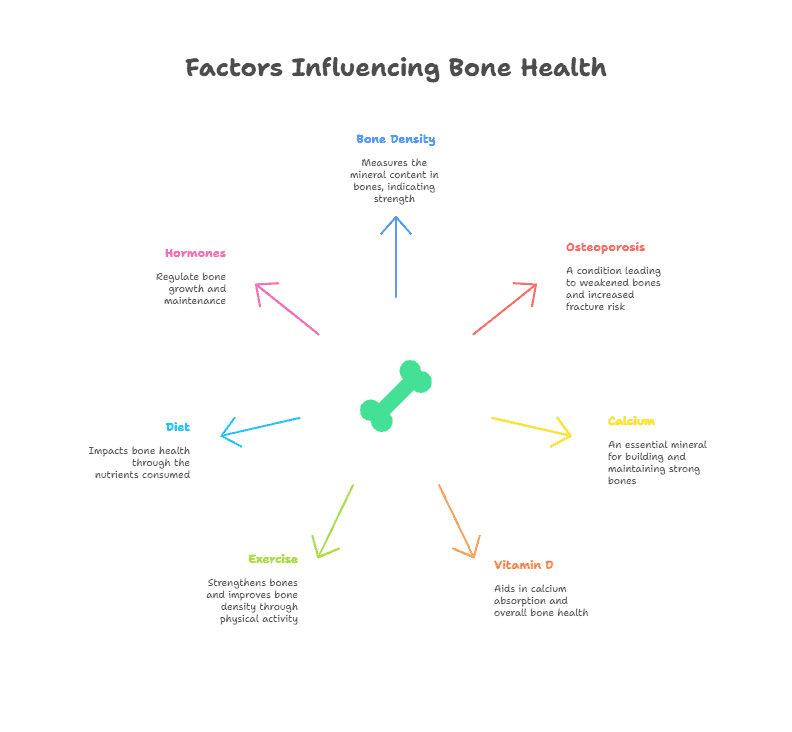Our skeletal system is a complex structure made up of bones, cartilage, and other connective tissues that provide support, protection, and movement for our bodies. One of the key components of bone health is bone density, which refers to the amount of bone tissue in a given volume of bone. Maintaining good bone health and density is crucial for overall health and well-being.
Factors Affecting Bone Health
There are several factors that can influence bone health and density. One of the most important factors is age. As we age, our bones naturally become less dense and more prone to fractures. Hormones also play a significant role in bone health, with estrogen and testosterone helping to maintain bone density. Nutritional factors, such as calcium and vitamin D intake, are crucial for building and maintaining strong bones. Physical activity, especially weight-bearing exercises, can also help improve bone density.
Other Factors to Consider
Other factors that can affect bone health include genetics, smoking, alcohol consumption, and certain medical conditions such as osteoporosis. Genetics can influence your risk of developing osteoporosis, a condition characterized by low bone density and increased risk of fractures. Smoking and excessive alcohol consumption can both contribute to decreased bone density and overall bone health.
Summary
In conclusion, maintaining good bone health and density is essential for overall health and well-being. Factors such as age, hormones, nutrition, physical activity, genetics, smoking, alcohol consumption, and certain medical conditions can all impact bone health. By understanding these factors and taking steps to maintain strong bones, you can help prevent fractures and other bone-related issues as you age.
Key Takeaways:
- Calcium and vitamin D are essential for maintaining bone health and density
- Physical activity and weight-bearing exercises help strengthen bones
- Smoking, excessive alcohol consumption, and certain medications can negatively impact bone health
- Hormonal changes, such as menopause, can affect bone density
- Genetics play a role in determining bone health and density
Key Terms:
- Bone density: The amount of mineral matter per square centimeter of bone.
- Osteoporosis: A condition characterized by the loss of bone density and increased risk of fractures.
- Calcium: A mineral essential for bone health and strength.
- Vitamin D: A nutrient that helps the body absorb calcium and maintain bone health.
- Exercise: Physical activity that helps strengthen bones and improve bone density.
- Diet: The food and drinks consumed that can impact bone health and density.
- Hormones: Chemical messengers that play a role in bone growth and maintenance.
